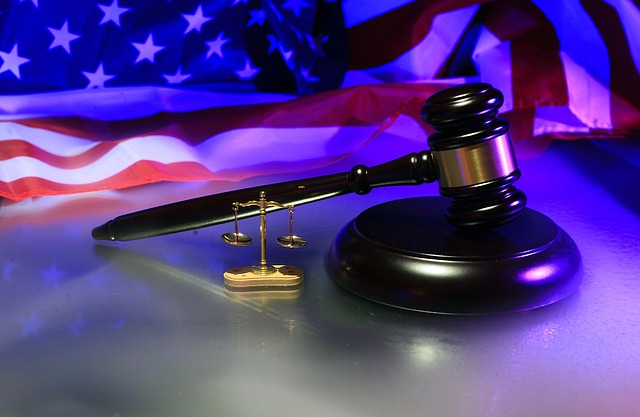Securities class action lawsuits demand a nuanced understanding of investor rights and effective Strategies to Contest Witness Credibility in Trials. Lawyers scrutinize witness motives, biases, and prior statements to assess credibility. Cross-examination, character assessments, and evidence analysis strengthen defenses, ensuring fairness and potentially achieving dismissal or mitigating indictments. Engaging seasoned expert witnesses with financial market expertise is crucial for navigating complex legal battles and securing fair outcomes.
Securities class actions involve collective legal pursuits where investors unite to hold entities accountable for fraudulent or misleading activities. This article delves into crucial strategies within these complex cases, focusing on understanding the legal framework governing securities class actions. We explore key witness identification and their testimony, effective cross-examination techniques to challenge credibility, and mitigating risks through expert witness strategies. By implementing these tactics, plaintiffs’ attorneys can strengthen their cases and contest witness credibility in trials.
- Understanding Securities Class Actions: Legal Framework
- Identifying Key Witnesses and Their Testimony
- Cross-Examination Techniques to Challenge Credibility
- Mitigating Risks Through Expert Witness Strategy
Understanding Securities Class Actions: Legal Framework

Securities Class Actions are a legal mechanism designed to protect investors from fraudulent or negligent acts in the financial markets. The legal framework surrounding these actions is complex, involving federal and state laws, as well as specific rules set by securities exchanges. When a class action is initiated, it’s crucial to understand the rights of both corporate and individual clients involved.
In such trials, Strategies to Contest Witness Credibility play a significant role. While avoiding indictment is not the primary goal, effectively challenging witness testimonies can significantly impact the outcome. General criminal defense strategies may be applicable here, focusing on aspects like cross-examination techniques, character assessments, and evidence scrutiny to ensure fairness and protect the interests of all parties involved.
Identifying Key Witnesses and Their Testimony

Identifying key witnesses is a crucial step in any securities class action lawsuit. These individuals can hold pivotal information that could make or break a case. Therefore, it’s essential to employ strategies that go beyond surface-level analysis when scrutinizing potential witnesses. Attorneys must delve into all stages of the investigative and enforcement process, examining their motives, biases, and prior statements to determine the credibility and reliability of their testimony. By unearthing relevant details, such as financial incentives or conflicts of interest, legal teams can effectively challenge witness accounts in court, aiming for a complete dismissal of all charges or avoiding indictment altogether.
Furthermore, understanding the nuances of witness examination is vital. Attorneys should be adept at questioning assumptions, exploring alternative explanations, and uncovering inconsistencies in their testimonies. This meticulous approach not only strengthens the defense strategy but also ensures that justice is served by presenting an unbiased view of the facts to the court.
Cross-Examination Techniques to Challenge Credibility

In securities class action lawsuits, challenging witness credibility is a critical component of presenting a compelling case. Cross-examination serves as a powerful tool for lawyers to expose inconsistencies, biases, or lack of knowledge in a witness’s testimony. By employing strategic techniques, legal professionals can effectively contest the reliability and veracity of evidence presented, potentially shifting the narrative of the trial. One key strategy involves questioning the witness’s motivation, exploring potential biases, and uncovering any financial incentives that might influence their testimony. This approach not only highlights potential conflicts but also raises doubts about the overall integrity of their statements.
Moreover, examining the witness’s past statements, records, or conduct can reveal discrepancies and weaknesses in their character. Comparing prior affidavits, depositions, or public comments with their current testimony can expose contradictions. Lawyers may also employ expert witnesses to provide counter-opinions or explain the methodology behind the original testimony, further complicating its credibility. These strategies, often utilized by seasoned general criminal defense attorneys, are particularly effective in complex cases involving large sums of money and significant impacts on the philanthropic and political communities across the country.
Mitigating Risks Through Expert Witness Strategy

In securities class action cases, mitigating risks through an expert witness strategy is a pivotal aspect of building a robust defense. As legal battles can be complex and highly technical, presenting credible and reliable expert testimony can significantly sway judicial outcomes. Strategies to contest witness credibility in trials become paramount, especially when facing allegations of white collar defense. By employing experienced experts who understand the nuances of financial markets and regulatory frameworks, defendants can challenge the validity of plaintiffs’ claims and avoid indictment across the country.
This approach involves meticulous preparation, rigorous cross-examination, and a deep understanding of both the subject matter and legal context. Expert witnesses must be able to articulate complex concepts in clear, concise terms, providing an objective analysis that supports the defense’s narrative. These strategies are crucial in navigating the intricate landscape of securities litigation, ensuring that justice is served while mitigating potential risks for the accused.
Securities class actions require robust strategies to contest witness credibility, especially given the complex legal frameworks involved. By identifying key witnesses and understanding their testimony, plaintiffs’ and defendants’ attorneys can employ effective cross-examination techniques to challenge veracity. Additionally, leveraging expert witnesses can mitigate risks and provide crucial insights, enhancing the overall trial strategy. These approaches are essential for navigating the intricate landscape of securities litigation, ensuring fair outcomes, and protecting the interests of all parties involved.






